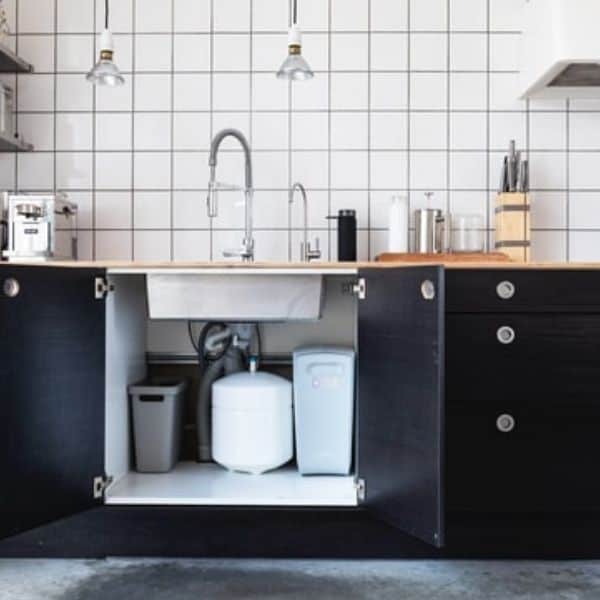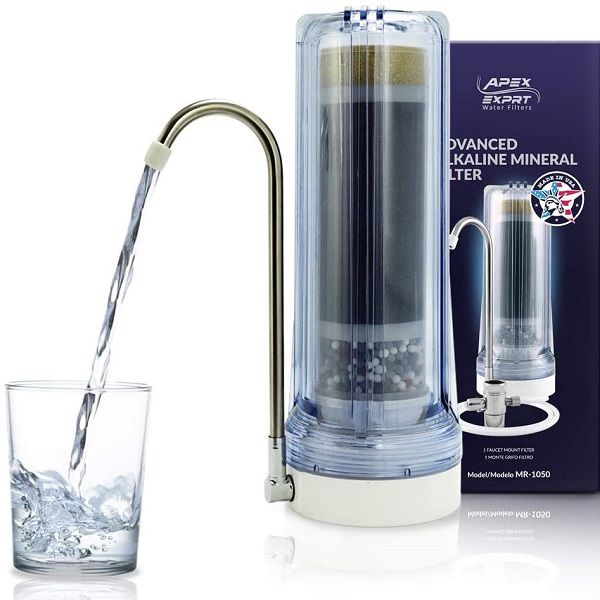3 Effective Ways to Remove Odor From Water
Consider yourself fortunate if you’ve never encountered foul-smelling water! It’s one of the most typical issues with water systems. Whether you have city or well water, turning on the faucet and smelling a foul odor may be unpleasant and worrisome.
Let’s talk about the three procedures listed below that will effectively remove odor from water.
Disinfection
The most frequent way of eradicating odor-causing bacteria in the water is to inject liquid chlorine into the water as it travels through your pipes.
You may also utilize a chlorine pellet feeder or even a gauging pump with hydrogen peroxide instead of Chlorine.
Worth noting that these choices often involve the addition of a carbon water filter to eliminate trace tastes and smells from chlorine or hydrogen peroxide and a contact tank to provide adequate contact time between the disinfecting solution and bacteria.
Reverse Osmosis

Reverse osmosis is efficient for removing a significant fraction of pollutants from natural water by placing the water under tension through a semipermeable RO membrane. RO systems will also work well in decreasing odor in drinking water.
That’s due to the chemicals present in hot water that cause the odor. After removing these chemicals, the stink will ultimately vanish away.
Technically, RO membranes can remove 98 percent of dissolved particles from drinking water.
Chlorination
Chlorinating the hot water system is effective in the removal of odor from hot water. The technique of adding chlorine to drinking water to eliminate parasites, germs, and viruses is known as chlorination.
To produce acceptable amounts of chlorine in drinking water, many techniques may be utilized. This process is practical and applicable because using or drinking water with low chlorine levels has no negative health consequences. However, it protects against waterborne illness epidemics.
What Is an Odor?
Homeowners and business owners alike worry about foul-smelling water, particularly when it comes to drinking water. If you’re dealing with foul-smelling water, you’re probably thinking of a rotten egg smell.
The odor problem in water may be caused by water contaminants as well as water purification treatments. The water of well, municipal water supply, and other sources of water are often subjected to odor issues for a variety of reasons.
It is possible that the water supply or the plumbing system is to blame if the odor persists. However, the quality of water or the water system can be responsible, too, for the odor.
Therefore, it is necessary to check out both.
Source of Odor Contamination
Bacterial Growth
Often, sink drains are filled with bacteria. Bacterial growth is among the common causes of smell in the well water. A study suggests that hydrogen sulfide gas occurring in the natural water supply of your home can cause a smell in the water. Bear in mind that sulfur causes rotten egg odor.
Leaky Underground Storage Tanks
In the case of well water or groundwater, the odor may originate due to storage tank fit below the surface or the improperly located septic systems.
The smell resembles that of chlorine bleach and gasoline-like odors.
Decaying Organic Matter Of Plumbing System
As plumbing systems or pipes are made of plastics, organic matters are trapped in them. These organic compounds can leak out of them and create sulfurous or sewage-like odors. Moreover, they can react with the added chlorine to the water supplies, resulting in the creation of odor in water.
The Symptoms and Odds of odor
Though water with odor is hard to drink, sometimes, it remains the only available option. However, it has several negative health impacts leading to chronic diseases. Therefore, it is necessary to understand the health effects before consuming smelly water.
If you consume water having a fuel-like smell or solvent-like odor, you need to know that it can cause various health complications, such as anemia, kidney, stomach, and liver problems, and increased cancer risk.
Furthermore, smelly water with a sharp chemical odor can result in blood disorders. Also, it can hurt your nervous system as well as cause reproductive disorders.
Also, if you consume water with a musty, earthy, fishy, or grassy odor, you need to stop drinking it because it carries a plethora of bacteria. Bacterial contamination is dangerous and can cause various malfunctions in the body.
This way, the body stops working normally, leading to the vulnerability to several diseases. The type of bacteria found in water determines the type of disease it can cause. Generally, conditions include typhoid, Tuberculosis, etc.
These are the odds of odor in water. Therefore, it is essential and advised to take care of odor in water.
Does Water Filter Remove odor?
Water filters are excellent in odor reduction from water. It does not matter what the odor source in water is; installing a water filter will do the trick for you.
For instance, a whole house water system is efficient in decreasing foul odors and other contaminants from the water of your entire house as you install it on water treatment systems.
Furthermore, it safeguards your family from various chemical and microbial hazards by removing hydrogen sulfide gas and destroying sulfur bacteria.
However, there are other water filters as well that are equally efficient in the removal of smell and odor from water.
Which Water Filters Remove Odor?
You may be wondering which water filters to purchase that may effectively decrease or eliminate odor. Don’t be concerned; we’ve got you covered.
With our list of the best water filters, you’ll be able to decide which water filter to purchase while keeping your requirements in mind.
Water Pitcher And Dispenser
Do you desire high-quality water but are tired of large, cumbersome water filters? Try out the water pitcher and dispenser. It provides the comfort you want with features such as compact size, portability, pre-filled water jugs, and alkaline remineralization.
The filtration is effective against many chemicals, including chlorine, heavy metals, aluminum, etc., that cause water odor. This filtration happens without costing you deep pockets due to activated carbon filters.
It is undoubtedly one of the cost-friendly and affordable filters in the market with quality-packed outcomes.
Whole House Filtration
If you want filtered and odorless water throughout your home’s water supply, a whole house water filter is the best option. It is large and durable, with a high filtering capacity.
Depending on the quality of your home’s water, you may choose from a variety of filters. The filter operates in three stages: sediment pre-filter, activated carbon filter, and post-filters or UV lamps.
These processes successfully remove virtually all pollutants from tap water that cause odors.
Countertop Water Filter

A counter-mounted filter connected to the sink through the tubing is employed to remove contamination from water that itself gives up on foul-smelling constituents of water.
The filtered water is returned to the faucet via a spout attached to the filtration unit.
Countertop filters are affordable and reliable options for water treatment. These devices remove up to 99 percent of heavy metals and prevent germs from growing, which is necessary for the elimination of water smells.
Refrigerator Filter
Who hates cold water with zero impurity and fewer health problems? None, right? It is where the refrigerator filter steps in. With a single canister filtration feature, you can enjoy clean and cold water that is purified with its automated chlorinator.
The best part is that you will get up to 99% filtered water after connecting it to a water source for the ice maker so that you don’t compromise on chilled water free from impurity.
The price range is economical at a relatively higher filter capacity of about 500 to 10000 gallons. So, it is an excellent option for getting rid of smelly water.
FAQs on How to Remove Odor From Water
Does boiling water remove the odor?
In most cases, the smell is due to some pathogens in household water. As boiling water is a great source of killing bacteria, it is an effective treatment method to eliminate odors from hot water as well as improve the water quality.
Does distillation remove the odor?
Distillation is effective in removing almost any impurity from water. It includes the removal of organic matters as well as inorganic elements. As the cause of water odor may be organic or inorganic matters (sulfur, iron, mineral, manganese, etc.), distillation can come in handy in both cases. However, distillation is not effective in reducing bacterial contamination in water.
Does a Water softener remove the odor?
Normal household water softeners do a poor job of eliminating sulfur smells from drinking water. In reality, softeners are prone to become fouled or clogged, reducing their softening ability. The exchange material may need to be replaced at some point.
Conclusion
As per the standard of the Environmental Protection Agency (EPA), the Public Water Suppliers (PWS) are advised to add chlorine to water prior to its distribution to offices and homes at a small quantity, i.e., 0.2 to 2 parts per million (ppm).
The level above it can cause problems. Therefore, it is needed to tackle with care to save your loved ones from health issues. Please let us know if you have any other questions or concerns. Is there any way to get rid of this contaminant?
